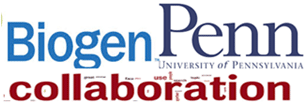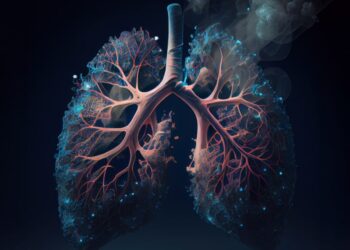Visionary, up to $2 billion multi-year alliance to focus on development of new gene therapy and gene editing technologies and create a therapeutic platform for a broad range of diseases
Biogen to team up with renowned gene therapy experts, Dr. James Wilson and Dr. Jean Bennett
Biogen announced a broad collaboration and alliance with the University of Pennsylvania (“Penn”) to advance gene therapy and gene editing technologies. The expansive research and translational development collaboration has multiple objectives, but will primarily focus on the development of therapeutic approaches that target the eye, skeletal muscle and the central nervous system (CNS). Another important aspect of the alliance will focus on validating next-generation gene transfer technology using adeno-associated virus (AAV) gene delivery vectors. The collaboration will also explore the expanded use of genome editing technology — the insertion, deletion or replacement of DNA in the genome of an organism — as a potential therapeutic platform.
This collaboration with Penn reinforces Biogen’s commitment to gene therapy and rare diseases. Biogen aims to build a robust gene transfer and gene editing platform for the future treatment of inherited or acquired diseases.
Biogen will work with James Wilson, M.D., Ph.D., Professor of Medicine and Pediatrics, and Director of Penn’s Gene Therapy Program, and Jean Bennett, M.D., Ph.D., Professor of Ophthalmology and Cell and Developmental Biology and Director of the Center for Advanced Retinal and Ocular Therapeutics. Both are recognized leaders in gene therapy in the Perelman School of Medicine at the University of Pennsylvania.
“We are committed to advancing gene therapy, and our collaboration with the University of Pennsylvania has significantly strengthened both our leadership and overall capabilities in the field,” said Olivier Danos, Ph.D., senior vice president, Cell & Gene Therapy at Biogen. “Joining forces with gene therapy pioneers, James Wilson and Jean Bennett, further enables Biogen to approach the technology from a powerful perspective. By exploring next-generation delivery in various tissues such as the retina, skeletal muscle and CNS, we will explore the potential for extending gene therapy beyond disorders linked to single gene mutations and into a broader spectrum of complex diseases, including devastating neurological conditions that affect a multitude of patients throughout the world.”
“My laboratory is committed to developing new technologies to address genetic diseases with few or no treatment options,” said Dr. Wilson, who is also the Director of the Orphan Disease Center at Penn. “This alliance is further evidence of Penn’s unflagging commitment towards enabling groundbreaking research and development in the cell and gene therapy field.”
“Recent advances in gene transfer and editing have now brought us to a promising stage and we believe that this exciting collaboration with Biogen will further fuel our collective ability to translate our research into viable gene therapies,” said Dr. Bennett.
Collaboration Overview
Under this broad research and development alliance, Penn will combine its extensive gene therapy resources and expertise to develop therapeutic candidates under the various collaboration programs using both existing and newly developed AAV vectors and will also aid in the development of new manufacturing approaches needed to support commercialization of gene therapy products. Biogen will in turn, leverage both its therapeutic area and target identification expertise and drug development capabilities to help advance the collaboration programs into the clinic and toward approval.
In addition to developing AAV gene replacement programs, the collaboration will also explore new therapeutic targets using both next-generation AAV vectors and genome editing technologies. Biogen expects these AAV gene transfer capabilities to be important for future gene therapy products and to pursue application of genome editing technology for numerous disease indications.
“Biogen views the development of gene editing technology as a natural extension of its current efforts to develop gene therapies employing viral and non-viral vectors,” noted Dr. Danos. “The successful development of gene editing technology for the treatment of inherited or acquired diseases requires expertise not only in a broad range of biological disciplines, such as translational development and viral and non-viral delivery, but also in a variety of aspects of conventional pharmaceutical product development, including manufacturing and clinical development.”
Deal Terms
Under the terms of the agreement, Penn may receive up to $2 billion in research funding, options and milestone payments. Biogen will make an upfront payment to Penn of $20 million with an additional $62.5 million committed to fund R&D costs extending over the next three to five years in seven distinct preclinical research and development programs conducted by the Wilson and Bennett laboratories. Each program may trigger milestones that range from $77.5 million to $137.5 million per product as well as royalties payable on net sales of products. Biogen also receives an option to license next generation AAV vectors for certain indications from Penn, for Biogen’s use outside of the collaboration. Separate from the agreement, Biogen is also entering into a license agreement with REGENXBIO for the exclusive rights to use adeno-associated virus serotype 8 (AAV8) or 9 (AAV9) technologies developed in Dr. Wilson’s laboratory, for which REGENEXBIO holds a worldwide patent license from Penn. The AAV8 and AAV9 technologies will be used in ophthalmic collaboration programs with Penn.
About Biogen
Through cutting-edge science and medicine, Biogen discovers, develops and delivers worldwide innovative therapies for people living with serious neurological, autoimmune and rare diseases. Founded in 1978, Biogen is one of the world’s oldest independent biotechnology companies and patients worldwide benefit from its leading multiple sclerosis and innovative hemophilia therapies. For more information, please visit www.biogen.com. Follow us on Twitter.
Editor’s Note: Wilson holds stock in REGENXBIO, Inc. and PENN has licensed certain PENN-owned AAV technologies to REGENXBIO.
About REGENXBio
REGENXBIO is a leading biotechnology company focused on the development, commercialization and licensing of recombinant adeno-associated virus (AAV) gene therapy. REGENXBIO’s NAV® Technology Platform, a proprietary AAV gene delivery platform, consists of exclusive rights to more than 100 novel AAV vectors, including AAV7, AAV8, AAV9 and AAVrh10. REGENXBIO’s mission is to transform the lives of patients suffering from severe diseases with significant unmet medical need by developing and commercializing in vivo gene therapy products based on REGENXBIO’s NAV Technology Platform. REGENXBIO seeks to accomplish this mission through a combination of internal development efforts and third-party NAV Technology Platform licensees. As of March 31, 2016, REGENXBIO’s NAV Technology Platform is being applied in the development of 28 product candidates for a variety of diseases, including five internally developed candidates and 23 partnered candidates developed by REGENXBIO’s licensees.
Contact: Biogen
Media:
Mark Dole, +1 781-464-3260
public.affairs@biogen.com
or
Investor:
Benjamin Strain, +1 781-464-2442
IR@biogen.com


















